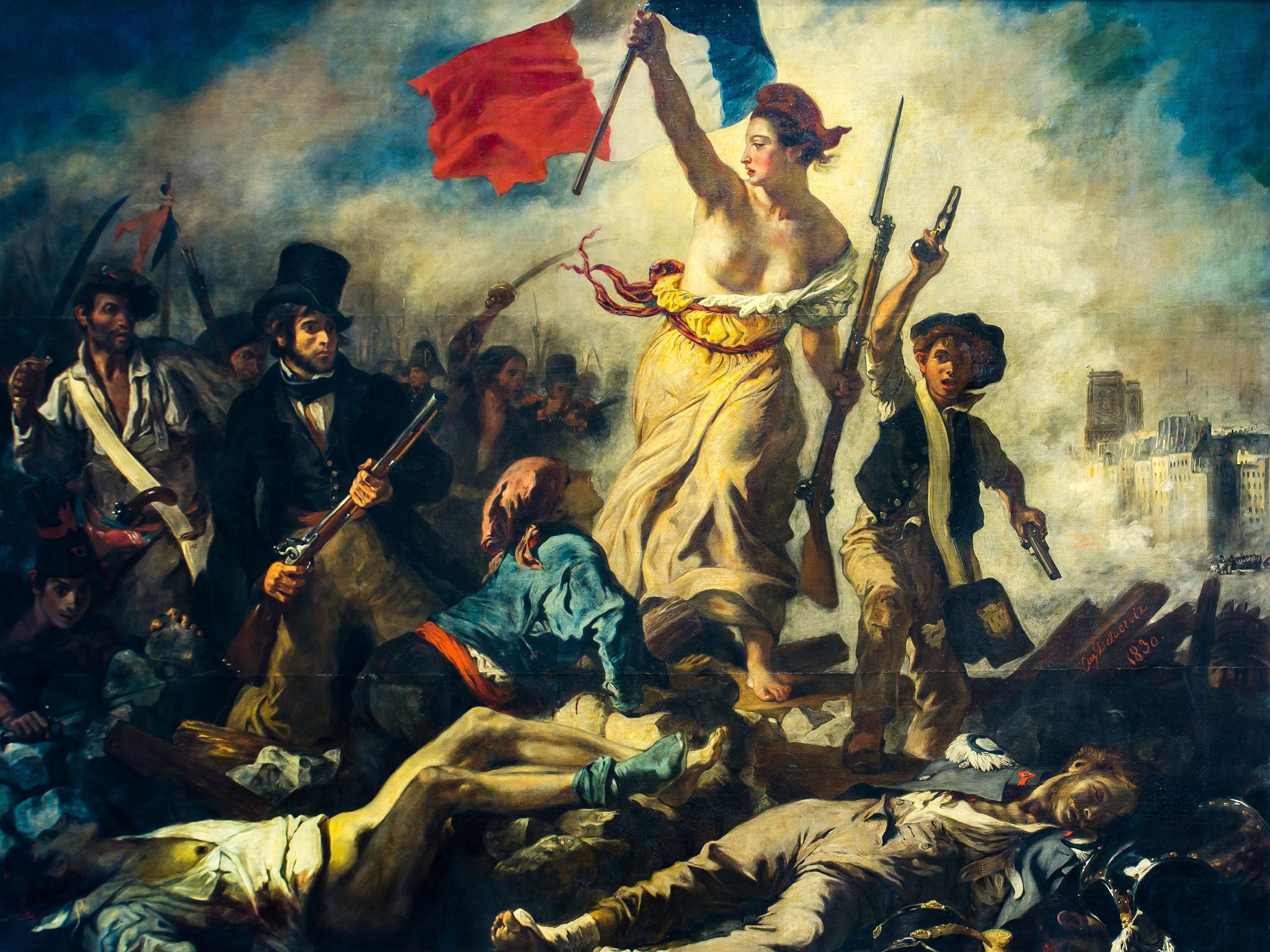The History of Modern France by Jonathan Fenby, book review: Why the French rebel
Absorbing portrait claims this great nation is a prisoner of its past

As the title suggests, this is a book with the ambition to be not just another history of modern France, but the history. In many respects, it succeeds. Jonathan Fenby positively gallops through a comprehensive account of France from 1789 until now. He has not selected only the juicy bits – the Revolution, Napoleon, the First World War, De Gaulle, 1968. He fills in what happens in between so that events are joined up and the narrative complete.
This history is comprehensive in another way, too. Along with the politics, Fenby incorporates the social and cultural aspects that seem so much more part of the fabric of France than of almost any other country on earth – the art and the fashion; the manners and the food. His appreciation of geography and regional difference is a particular strength.
The risk is an overload of information and some rather action-free chunks. But Fenby mostly deflects any hint of tedium with his stylish writing, a cracking pace and a multitude of gossipy tidbits from the writings of the day. Two editorial devices – one-page pen-portraits dropped into the narrative, and day-by-day chronologies for key events – work well. Regrettably, the latter half of the book has its share of misprints and minor duplications that might suggest undue haste in the editing department.
Fenby's ambition, however, does not stop at writing the history of modern France. As he writes in his prologue, "The lasting legacy of the Revolution", he also sets out to make an argument. He wants to show how today's France has been, perhaps uniquely, hobbled by its history; how the sides that opposed each other in 1789 have never really gone away. Part of his thesis is that a predisposition to conflict and against compromise has made it harder for the French – than for, say, the British – to create a political and economic system suited to the modern day.
And here I am less convinced that Fenby has made his case. Yes, the shadow of the Bastille and all its associations still hangs heavy over France; and, yes, the French may be more prone to ideological division, as between establishment and rebels, than many others in the industrialised world; readier, too, to take their grievances to the streets. But does 1789 and all that really explain why France has adapted less well to modernity – and is that premise even true?
If the revolutionary divide has defined France ever since, then Vichy France could be cited as an example; as could the appeal of the National Front today. But that strand of continuity is not one that Fenby pursues. And while his mostly implied criticism of De Gaulle is surely just, one result is that the very particular appeal of De Gaulle, and Gaullism, for the French might have been underplayed.
Fenby closes on a pessimistic note, with a chapter designed to clinch his argument that France is "the prisoner of its history and its many embedded narratives". Even if he is right about the history part, it is worth asking how far that has really held France back. Can a country whose productivity is 20 per cent higher than that of the UK, a country that attracts more foreign tourists than almost anywhere else, a country whose luxury goods remain in a class of their own, really have such bleak prospects unless it changes? Another message you could draw from Fenby's absorbing volume is that the endurance of the past into the present is also part of France's strength.
Join our commenting forum
Join thought-provoking conversations, follow other Independent readers and see their replies
Comments